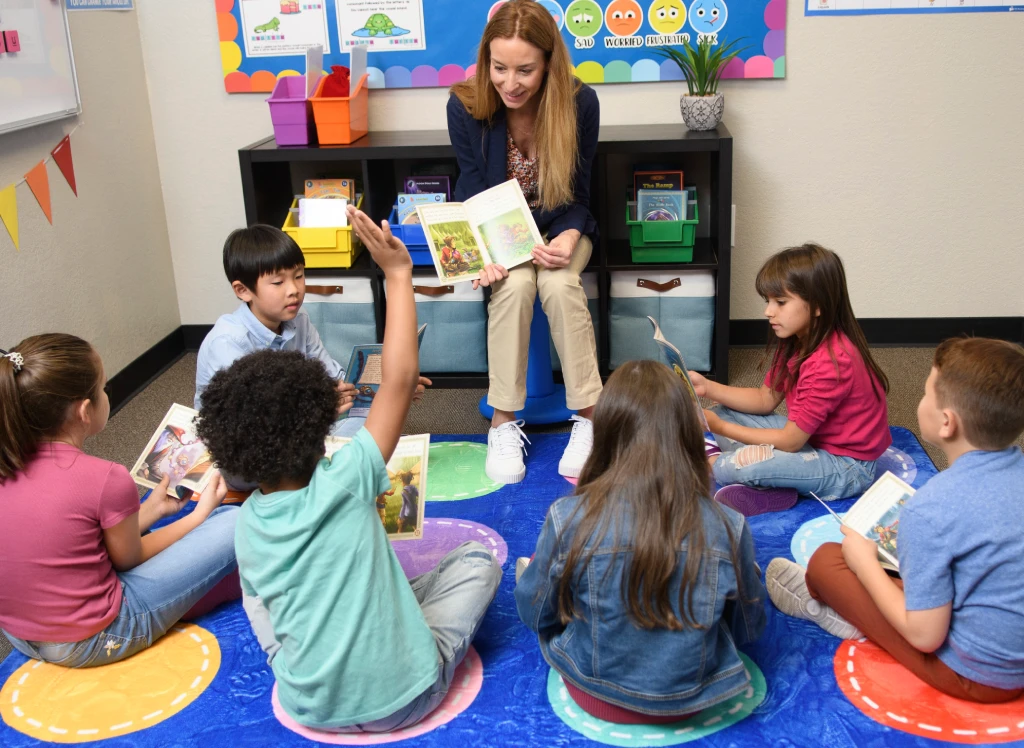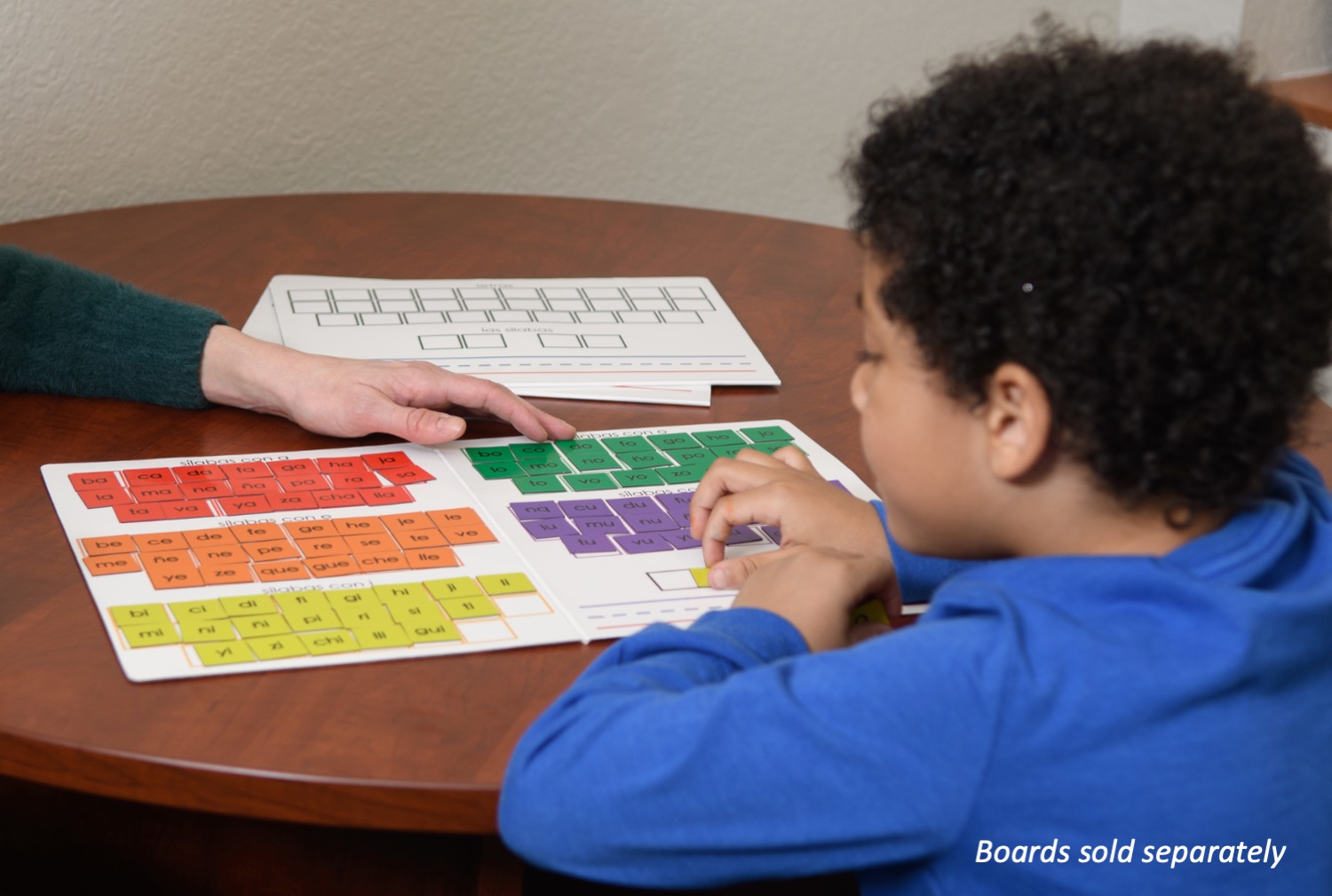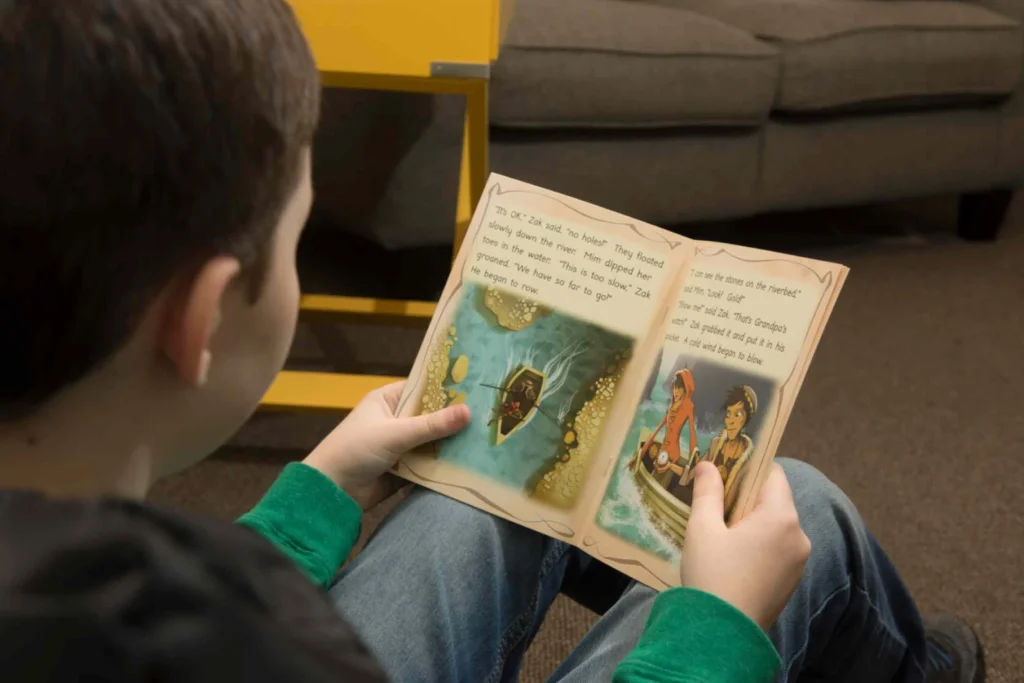In the early stages of a child’s life, the foundations of literacy are built. Picture books play a crucial role in this developmental phase, providing more than just entertainment. They are a powerful tool for early literacy development, language acquisition, and nurturing a lifelong love for reading.
Understanding Early Literacy Development
Early literacy development is about building the skills necessary for reading and writing. This includes the ability to understand the meaning of words, recognizing letters and sounds, and developing vocabulary. Picture books are uniquely equipped to support these skills through their engaging visuals and narratives.
The Role of Picture Books in Language Development
Picture books are instrumental in language development for young children. The combination of text and illustrations helps children make connections between words and their meanings. This visual context aids in vocabulary acquisition and comprehension, facilitating a deeper understanding of language.
Vocabulary Building
Picture books often introduce children to a rich array of vocabulary, exposing them to words they might not encounter in everyday conversations. The illustrations provide clues to the meanings of unfamiliar words, making it easier for children to grasp new concepts and expand their vocabulary.
Storytelling and Comprehension
The narrative structure of picture books helps children understand the basics of storytelling, such as plot, character, and setting. As they follow along with the story, they learn to predict outcomes and infer meanings, which enhances their comprehension skills.

Enhancing Literacy Skills Through Picture Books
Reading picture books with children is not just about the story—it’s about developing literacy skills that will serve them throughout their lives. These skills include print awareness, phonemic awareness, and critical thinking.
Print Awareness
Print awareness is the understanding that written words have meaning. Picture books help children recognize this by drawing their attention to the text as they follow along with the story. They begin to notice the direction of reading, the spacing between words, and the relationship between spoken and written language.
Phonemic Awareness
Phonemic awareness is the ability to hear and manipulate the individual sounds in words. Many picture books use rhyme, alliteration, and repetition, which help children develop this crucial skill. As they listen to and mimic these sounds, they become more attuned to the phonetic elements of language.
Encouraging Critical Thinking
Picture books often explore complex themes and emotions, prompting children to think critically about the content. They learn to ask questions, make connections, and consider different perspectives. This critical engagement lays the groundwork for analytical thinking in later years.
The Emotional and Social Benefits of Picture Books
Beyond language and literacy skills, picture books also offer emotional and social benefits. They provide opportunities for bonding, empathy, and cultural understanding.
Bonding Through Shared Reading
Reading picture books together is a bonding experience for children and caregivers. It fosters a sense of closeness and security, creating a positive association with reading. This shared activity encourages communication and strengthens relationships.
Developing Empathy and Understanding
Picture books often depict diverse characters and experiences, allowing children to explore different cultures and viewpoints. This exposure helps them develop empathy and understanding for others, fostering a more inclusive worldview.
Building Confidence
As children become more familiar with stories and language, their confidence in reading grows. Picture books provide a safe space for children to practice their skills, building self-esteem and a sense of accomplishment.
Selecting the Right Picture Books
Choosing the right picture books for early literacy development is key. Consider the following factors when selecting books for young readers:
Age-Appropriate Content
Ensure the content is suitable for the child’s age and developmental stage. Look for books with simple, engaging stories and colorful illustrations that will capture their interest.
Diverse Representation
Select books that feature diverse characters and settings. This representation is important for children to see themselves and others reflected in the stories they read.
Interactive Elements
Books with interactive elements, such as flaps, textures, or sound, can enhance engagement and make reading a more dynamic experience.

Tips for Reading Picture Books with Children
To maximize the benefits of picture books, consider these tips for reading with children:
Make It a Routine
Establish a regular reading routine to create a sense of consistency and expectation. This could be a bedtime story or a designated reading time during the day.
Encourage Participation
Invite children to participate in the reading process. Ask them questions about the story, encourage them to predict what will happen next, and let them turn the pages.
Use Expressive Reading
Bring the story to life with expressive reading. Use different voices for characters and emphasize the rhythm and rhyme of the text.
Connect to Real-Life Experiences
Relate the story to the child’s own experiences. This connection can enhance comprehension and make the story more meaningful.
Conclusion
Picture books are a vital component of early literacy development, offering a wealth of benefits for young readers. They provide a foundation for language development, enhance literacy skills, and offer emotional and social growth. By selecting the right picture books and engaging children in meaningful reading experiences, caregivers can foster a love for reading that lasts a lifetime.
Incorporating picture books into a child’s daily routine not only supports their literacy journey but also enriches their lives with stories, knowledge, and understanding. As we embrace the power of picture books, we empower children to become confident, empathetic, and lifelong learners.
Contact PDX Reading Specialist for a Comprehensive Assessment
If you’re looking to enhance your child’s literacy journey and ensure they are on the right path, consider reaching out to the PDX Reading Specialist. Our team offers comprehensive assessments tailored to your child’s unique needs, helping to identify strengths and areas for growth in their reading skills.
Don’t wait—empower your child with the tools they need for lifelong learning. Contact us today to schedule an assessment and take the first step towards fostering a love for reading!


